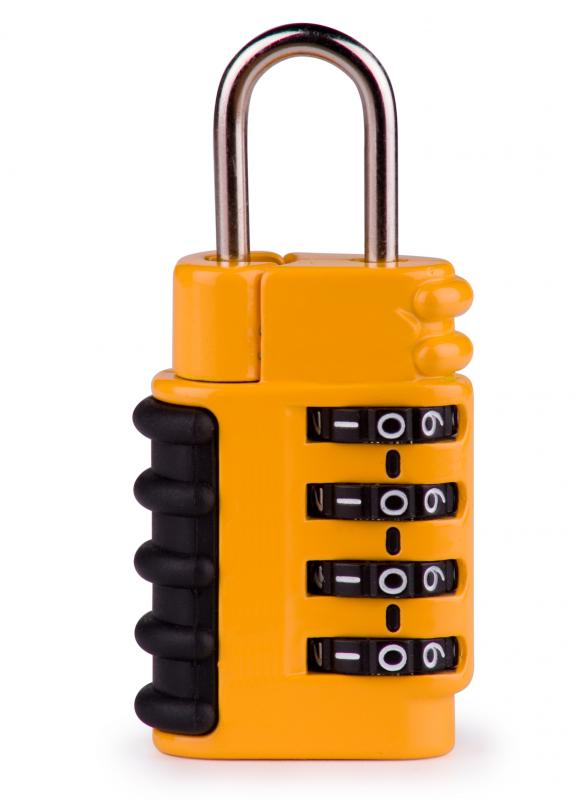At WiseGEEK, we're committed to delivering accurate, trustworthy information. Our expert-authored content is rigorously fact-checked and sourced from credible authorities. Discover how we uphold the highest standards in providing you with reliable knowledge.
What does a Locksmith do?
A locksmith is someone who specializes in locks. Anyone who has been locked out of their car or home is probably familiar with one of the services a locksmith offers, but locksmiths do a lot more than helping people get back into their locked homes. This profession is quite ancient; as long as there have been locks and keys to fit them, there have been people to specialize in them. In addition to handling locks, some locksmiths also work in security consulting, since locks are one way to control access to something.
As with any profession with “smith” in the title, locksmiths originally fabricated locks and keys from metal, although modern locksmiths also work with electronic locks, ranging from key card entry systems to biometric locks. Locksmiths install, repair, and adjust locks in everything from cars to office buildings, and they also offer services to people who are locked out or individuals who want to consult with someone about their security systems.

Most locksmiths need a lot of equipment for the practice of their trade, and it is not uncommon for a locksmith to use a van to carry his or her tools around. Locksmiths typically carry tools which are designed for picking locks, so that they can get into locked structure and vehicles, and they also have equipment to fabricate keys, program electronic locks, and to perform other tasks related to the profession, such as diagnosing problems with electronic lock and security systems.

When a locksmith installs locks on an office building, he or she usually becomes that building's default locksmith, because of his or her presumed familiarity with the building's locks. Some locksmiths retain extra key sets, by request, to gain quick entry when needed. They also keep records of the types of locks used in a structure, replacement or repair work undertaken, and any other relevant information, such as connection with a security system which demands that a code be entered when a door is unlocked.

To become a locksmith, most people train as apprentices. It helps to have metal fabricating, construction, and electronics skills, but these are not required; locksmiths perform such specific tasks that these skills can be learned on the job. In some regions, locksmiths are licensed, and legal codes may lay out the term under which titles like “Master Locksmith” may be used. Good locksmiths are excellent problem solvers who are willing to work at unusual hours, and they are of course discreet, as they often handle confidential or sensitive information.
AS FEATURED ON:
AS FEATURED ON:














Discussion Comments
Thanks for the information. I didn't realize that you could consult with a locksmith about security systems. Now I am curious, I think I will call my locksmith in Surrey, BC to ask them about that!
Locksmith nowadays do a lot more than 50 years ago. They have developed more complex but much faster ways to unlock cars, homes, and other things. Most locksmiths deal with electronic locks and keys as well as security systems so it is no longer a small general field.
Post your comments